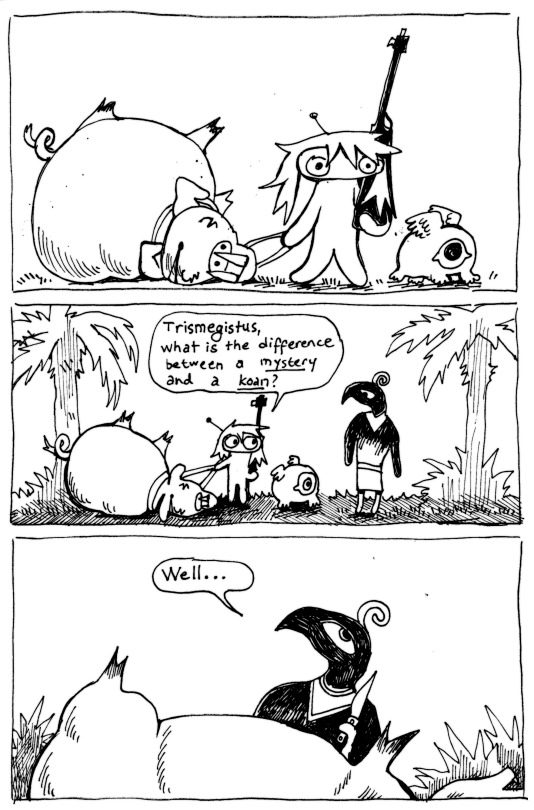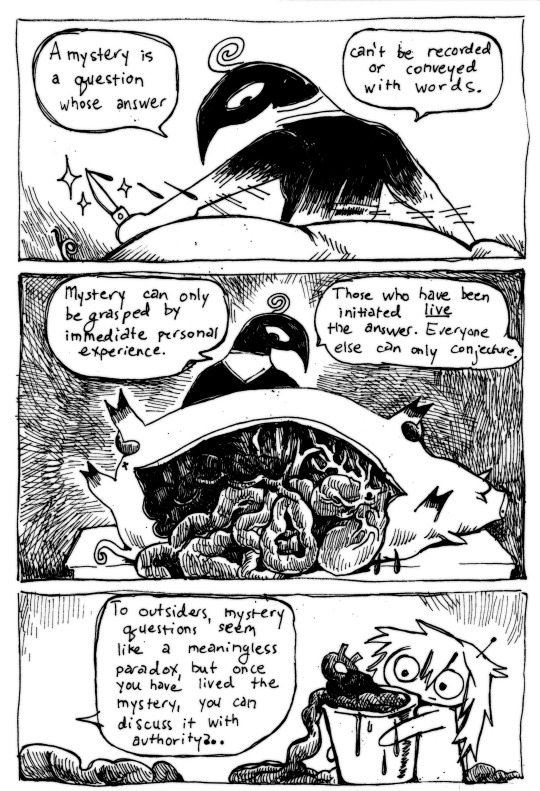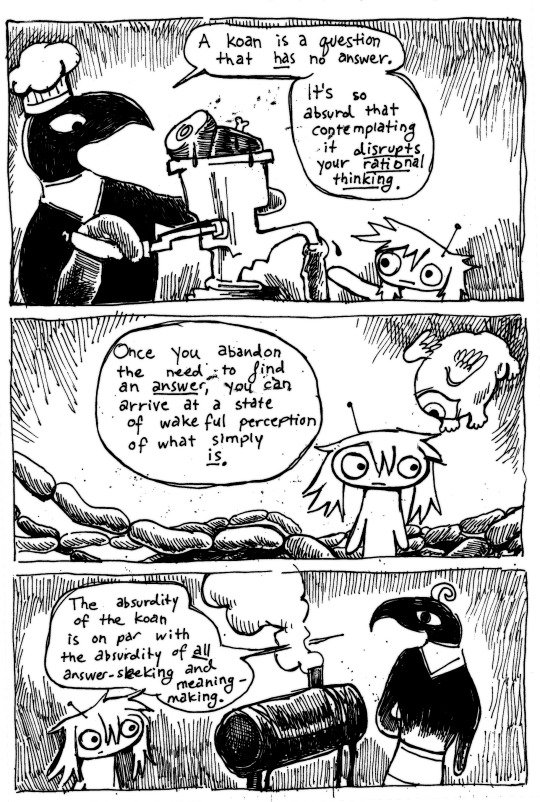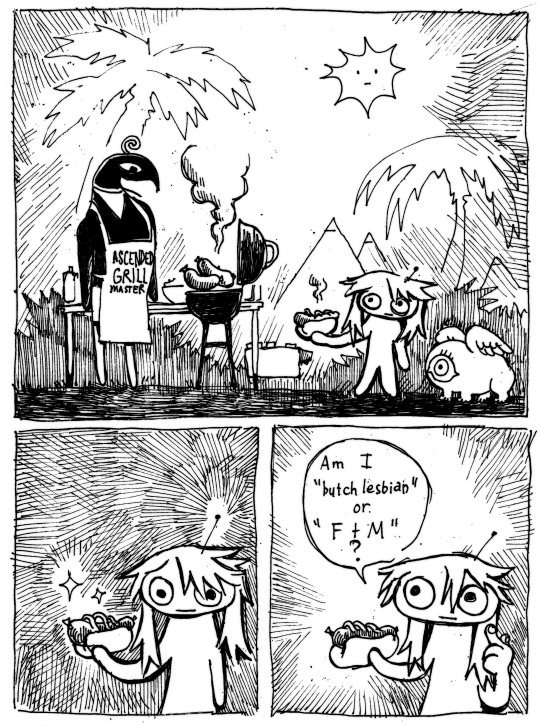Hi, I'm Finn (they/them) and this is my Kemetic blog! Follows from Honeysuckle-knight. Nazis/terfs fuck off.
Don't wanna be here? Send us removal request.
Text
Here's a few ways you can tell if a witchcraft book is written by someone without real experience with working magic;
The things they claim to use daily/regularly are prohibitively expensive, difficult to source, or otherwise impractical for regular use. Example: they tell you to use a daily incense cleanse using real frankincense resin. They suggest you use precious gems in ways that are impractical like attaching to clothes or for use in casting from a fortune-telling bag.
They claim a regular practice that would be difficult, inconvenient, or outright impossible for someone to do regularly, with no suggestion of alternatives. Example: claiming they wake up in the wee hours of the morning to perform a ritual, then go back to sleep and work a full day every day. Saying that a spell Must be performed within a standing stone circle when the author likely does not have access to a circle of standing stones.
Deferring their authority onto supernatural sources rather than taking responsibility for their own beliefs that they have come to. Example: 'women are just X, but don't blame me, this is what the spirits say'.
They appear to be out of touch with common definitions established within the community, but present this as a generic truth rather than their specific gnosis. Example: providing their own definitions for common words like Paganism without explanation.
Excessive emphasis on your own spiritual authority and refusing to take responsibility for what they teach, despite the fact they're the one who wrote a fucking book. Example: "nobody can tell you what to believe" when the book is specific about beliefs you should hold. "There are no authorities" when the book sets clear rules and guidelines.
I call this the "cakes and ale" problem. In many older books on witchcraft, the end of a ritual was signified by breaking bread and sharing a meal with the people who worked it. These days, it is very rarely included. This is an identifiable shift; in the early days of witchcraft, people primarily practiced in groups or had mentors. As a result, the maintenance of those real-life relationships were important. Anyone who's been to a convention or similar event with other people will know how vital debriefing afterwards is, and this goes doubly for magical workings. Touching base with how people feel, what they thought, what worked/didn't work.
The 90s and mainstreaming of the witchcraft movement led to an atomising of people's practices. Solitary witchcraft became the default, books were typically aimed towards individuals rather than groups. Skills like navigating conflict, disagreement, or even just difference in belief, were no longer part of the skills you needed to learn as a witch. Part of this was the recognition of witches as a marketable demographic under capitalism. The other part was the rise of the internet, which allowed contact without necessarily community, giving people access to un-gatekept information. Most books these days don't include a 'cakes and ale' part in their discussion of ritual, because the practitioner is either assumed to be solitary, or the author does not comprehend why that part was included and assume it isn't important. I'm not saying that solitary practice is bad, and I'm also not saying we should gatekeep magical information, I am simply remarking on a dynamic shift between the early movement and now.
This is also a reason why a lot of witchcraft books nowadays are bad, because a lot of the people writing them have not had to run their ideas past another person who might remark negatively about them. Very few people walk their talk in terms of practice and you can tell.
22 notes
·
View notes
Text
I call this the "cakes and ale" problem. In many older books on witchcraft, the end of a ritual was signified by breaking bread and sharing a meal with the people who worked it. These days, it is very rarely included. This is an identifiable shift; in the early days of witchcraft, people primarily practiced in groups or had mentors. As a result, the maintenance of those real-life relationships were important. Anyone who's been to a convention or similar event with other people will know how vital debriefing afterwards is, and this goes doubly for magical workings. Touching base with how people feel, what they thought, what worked/didn't work.
The 90s and mainstreaming of the witchcraft movement led to an atomising of people's practices. Solitary witchcraft became the default, books were typically aimed towards individuals rather than groups. Skills like navigating conflict, disagreement, or even just difference in belief, were no longer part of the skills you needed to learn as a witch. Part of this was the recognition of witches as a marketable demographic under capitalism. The other part was the rise of the internet, which allowed contact without necessarily community, giving people access to un-gatekept information. Most books these days don't include a 'cakes and ale' part in their discussion of ritual, because the practitioner is either assumed to be solitary, or the author does not comprehend why that part was included and assume it isn't important. I'm not saying that solitary practice is bad, and I'm also not saying we should gatekeep magical information, I am simply remarking on a dynamic shift between the early movement and now.
This is also a reason why a lot of witchcraft books nowadays are bad, because a lot of the people writing them have not had to run their ideas past another person who might remark negatively about them. Very few people walk their talk in terms of practice and you can tell.
22 notes
·
View notes
Text
Actually yeah I'm getting into this. People don't leave paganism/witchcraft/what have you solely because they lose faith. If anything, losing faith is a symptom of a much bigger problem; religion and spiritual practice needs community in order to flourish. It is fucking miserable having nobody to talk to about your beliefs or thoughts or ideas, it feels isolated and lonely. Not everyone (and indeed not most people outside of big cities) will have real life communities, that's a function of being in a significant minority, but online spaces are fundamentally not filling this need either. No shit people turn to more mainstream religions, *especially* anyone who has to deal with the still rampant and still-widely-unaddressed transphobia/homophobia/racism of these spaces. Learn some conflict resolution, read some fucking Starhawk on how to manage disputes in spiritual communities, don't just wank about how people used to be nicer mysteriously and magically without anyone doing any actual work.
10 notes
·
View notes
Text
I always want to sit people down and ask what they think Caused this mysterious fall from grace. What Materially is different Now compared to whichblr of like three years ago. It's not tiktok because gods alive we've had instagram and facebook for far longer and in many ways those are worse. Every single generation thinks their earlier years were better. And here's a big fucking swing; if you had a community of witches that were considerate and tolerant and now you don't, then that is the consistent issue of online witch spaces; nobody knows how to keep a fucking community together without it splintering to pieces. This is why people leave and become catholic or whatever. For all everyone's talk, nobody knows how to actually keep people together and manage conflict.
"Do you remember when whichblr was tolerant and we had clear guidelines about appropriation and-" That was never a time. You are imagining a prelapsarian past that does not exist. I have been in and around witch spaces on tumblr since I was like 12 and they have always been riddled with chakra-slingers and people being judgemental over each other's practices. The entire witchcraft movement has in fact always been like this. If there was ever a period where every witch you came across was sensible and nonjudgemental and well educated about cultural appropriation, that was because you curated your spaces and not because everyone was miraculously sensible three/five/ten years ago. Come On.
14 notes
·
View notes
Text
"Do you remember when whichblr was tolerant and we had clear guidelines about appropriation and-" That was never a time. You are imagining a prelapsarian past that does not exist. I have been in and around witch spaces on tumblr since I was like 12 and they have always been riddled with chakra-slingers and people being judgemental over each other's practices. The entire witchcraft movement has in fact always been like this. If there was ever a period where every witch you came across was sensible and nonjudgemental and well educated about cultural appropriation, that was because you curated your spaces and not because everyone was miraculously sensible three/five/ten years ago. Come On.
14 notes
·
View notes
Text
I was on a walk on a trip and saw a bunch of my classmates bunched up on a board walk terrified of a snake that 1) couldn't feel they were there, we were on a boardwalk and it was on the ground a bit away and 2) was very clearly sunning itself and not agitated, and I helped usher them past it
Which is really like. 80% of spirit work imo. Most of what's out there has no reason to even know we're here, and if they do, then they're not going to attack us for no reason. Everything lives in its own rich miasma of sensation and its own world of consideration and priorities. Snakes generally want small easy prey and their own space and to avoid anything large enough to give it trouble. Spiders generally want their webs and a steady source of food and to not be surprised by large animals suddenly encroaching on it. Everything has priorities that may not be comprehensible, but that make sense to those things.
4 notes
·
View notes
Text
I think I'm also just too Australian to really be scared of things that also live in my house. "Oh no how terrifying" as if 99.95% of the time basically everything doesn't keep to itself doing its own thing. Snake/spider rules, mind your business, don't do anything stupid, check your metaphorical shoes before putting them on and don't go into metaphorical tall grass and you'll be fine.
I used to be really neurotic about setting up wards + cleansing regularly + etc but aside from the fact that i could never actually maintain the habit of it [problems disorder] I've come to realise that it's honestly a pretty shitty way to maintain metaphysical safety in your house anyway
Unless you built your house yourself then there's probably entities dwelling there that have lived there longer than you who have a right to live there too (not to mention the possibility for benign-to-helpful spirits, your domovoi/brownies/agathos daimon/etc that would be actively unlucky to try to kick out).
And ultimately like. It doesn't prevent you from kicking out/appeasing a bad guest if they so arise. If anything i like to think of it as a tenants union; nobody wants trouble on their doorstep, you can invoke whatever deities you want to clear out your place or you can more quickly and with less effort ask the house [collective] to help you kick them out. You tell me the spirit of house spider isn't going to help you there, honestly.
6 notes
·
View notes
Text
And taking up a perspective of listening and observing rather than living in fear never hurts either. I was sitting in my room trying to find something, asked for help finding it, and then got bugged by the fact that the corner of my fitted sheet was riding up. Fixed up the corner -> immediately found where I had dropped that thing down the side of my bed. Simple trade of care and maintenance for what I needed done.
I used to be really neurotic about setting up wards + cleansing regularly + etc but aside from the fact that i could never actually maintain the habit of it [problems disorder] I've come to realise that it's honestly a pretty shitty way to maintain metaphysical safety in your house anyway
Unless you built your house yourself then there's probably entities dwelling there that have lived there longer than you who have a right to live there too (not to mention the possibility for benign-to-helpful spirits, your domovoi/brownies/agathos daimon/etc that would be actively unlucky to try to kick out).
And ultimately like. It doesn't prevent you from kicking out/appeasing a bad guest if they so arise. If anything i like to think of it as a tenants union; nobody wants trouble on their doorstep, you can invoke whatever deities you want to clear out your place or you can more quickly and with less effort ask the house [collective] to help you kick them out. You tell me the spirit of house spider isn't going to help you there, honestly.
6 notes
·
View notes
Text
I used to be really neurotic about setting up wards + cleansing regularly + etc but aside from the fact that i could never actually maintain the habit of it [problems disorder] I've come to realise that it's honestly a pretty shitty way to maintain metaphysical safety in your house anyway
Unless you built your house yourself then there's probably entities dwelling there that have lived there longer than you who have a right to live there too (not to mention the possibility for benign-to-helpful spirits, your domovoi/brownies/agathos daimon/etc that would be actively unlucky to try to kick out).
And ultimately like. It doesn't prevent you from kicking out/appeasing a bad guest if they so arise. If anything i like to think of it as a tenants union; nobody wants trouble on their doorstep, you can invoke whatever deities you want to clear out your place or you can more quickly and with less effort ask the house [collective] to help you kick them out. You tell me the spirit of house spider isn't going to help you there, honestly.
6 notes
·
View notes
Text
While I'm here; yes, yes, we want our amateurs to move beyond rote correspondences. We all want that, we're agreed in it, we have been since forever. But one cannot be scolded into knowing better, nor can 'you shoulds' magically (ha) make someone comprehend things that are incomprehensible. Once you're a bit further along the dunning-kreuger curve you forget what it's like being less far along. You say "you should have your own correspondences" and forget how we came to ours.
So this is to say, if somehow there are any amateur witches following me, what I want you to do in the next... call it a week. Is take one thing, be it a crystal in your collection, an incense, a herb, a tool, a cardinal direction, what have you. I want you to do two things; I want you to take it very seriously, and I want you to play with it.
Have you ever really observed a mint leaf? The texture of it? The smell? It's not the smell of gum or mint ice cream, it's subtle and green and herbaceous. Roll it in your fingers and note how the oils are released when you crush it but not when you cut it, or at least not in the same way. Leave it to dry and notice the changes. This is similar advice to the "come up with fifty uses for black pepper" thing I see every now and again, but that is the end result. The path there is just... seriousness and play. Seriousness of observation and consideration and analysis, and play of testing what it does, how it makes you feel, what you can make it do.
Or to use a more pointed example, I recently started associating the element of Water with the East. I came to this in both methods: I considered how the sun rises over the ocean on the East Coast where I live, I thought about travels eastward to visit the ocean, I thought about the mystery of light and water, how it bends light. And I also played with it. I tried other directions and configurations, I connected to the feeling it gave me to see the early morning sun hit the waves, I meditated on it and let my mind wander over and around the thought. And that is how I came to it, by paying attention carefully.
0 notes
Text
As the article states too, like. When we get into these 'debates' we end up fundamentally shifting the narrative about both the thing itself and who gets to be an authority on the thing. Accusing someone selling courses on something they can't claim of appropriating is acting like they have some integrity and ~vision~ that they straight up do not have and should not be afforded to em. Just call it what it is, yknow.
Anyway this blog is largely dead (long story that's not going on here) but I think we would have a lot more productive conversations about cultural appropriation in spiritual spaces if we like. thought about it in the manner of plagiarism. White person talking about chakras or voodoo or some other shit? Who give a shit if it's ~from a place of universal love and truth~ or w/e, it's taking an idea that isn't yours and passing it off as your own without attribution and credit and changing the narrative of these practices/concepts as a result. Appropriation/appreciation as an axis lets people argue that there's an amount of good intentioned you can be that overcomes, yknow. Power dynamics. Or just doing half-baked shit based on what you reckon. Pham, M.-H. T. (2017). Racial Plagiarism and Fashion. QED (East Lansing, Mich.), 4(3), 67–80. https://doi.org/10.14321/qed.4.3.0067
10 notes
·
View notes
Text
Anyway this blog is largely dead (long story that's not going on here) but I think we would have a lot more productive conversations about cultural appropriation in spiritual spaces if we like. thought about it in the manner of plagiarism. White person talking about chakras or voodoo or some other shit? Who give a shit if it's ~from a place of universal love and truth~ or w/e, it's taking an idea that isn't yours and passing it off as your own without attribution and credit and changing the narrative of these practices/concepts as a result. Appropriation/appreciation as an axis lets people argue that there's an amount of good intentioned you can be that overcomes, yknow. Power dynamics. Or just doing half-baked shit based on what you reckon. Pham, M.-H. T. (2017). Racial Plagiarism and Fashion. QED (East Lansing, Mich.), 4(3), 67–80. https://doi.org/10.14321/qed.4.3.0067
10 notes
·
View notes
Photo


Bracelet with Agathodaimon, Isis-Tyche, Aphrodite, and Terenouthis
Roman Period Egypt, 1st century B.C.–A.D. 1st century
3K notes
·
View notes
Text


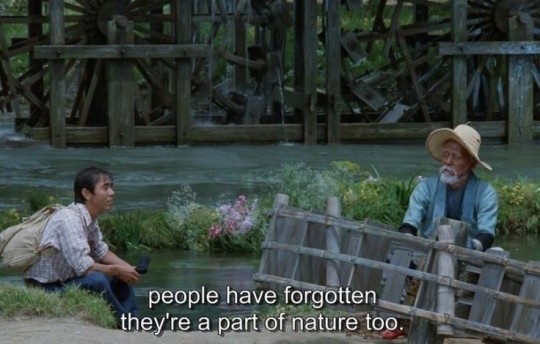

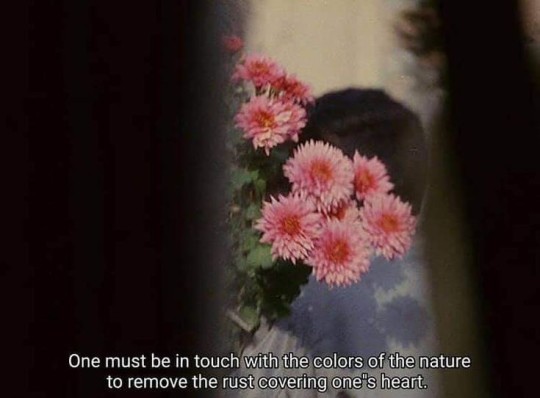



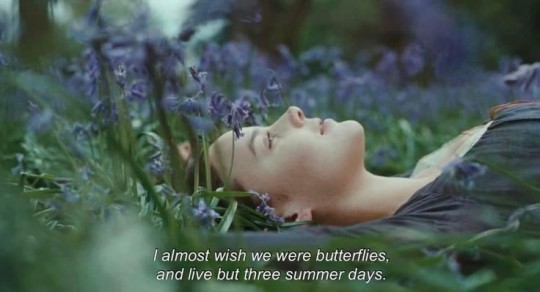

and if that is not enough, what is enough?
@underwata, Vincent van Gogh, Dreams (Akira Kurosawa), Ocean Vuong, Close Up (Abbas Kiarostami), Charlotte Brontë, Leslie Zhang, Mary Oliver, Bright Star (Jane Campion), Mary Oliver
buy me a coffee
2K notes
·
View notes
